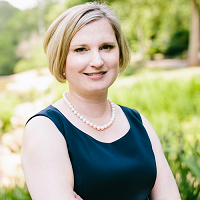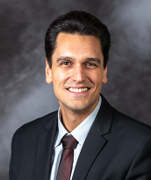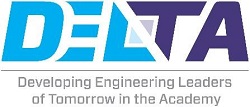Align, advance, and thrive in your academic career.
This course empowers early-career faculty to effectively integrate their teaching, research, and service in ways that support their career advancement, align with personal goals, and meet institutional and disciplinary expectations.

The DELTA Junior Faculty Institute is an intermediate-level, instructor-led course for early-stage faculty members who show promise of significant impact over the course of their career. By the end of this course, participants will be able to integrate their scholarship, teaching, and service to advance their careers in alignment with personal goals and institutional and disciplinary expectations.
This course is intended for early-stage (at least one academic year’s experience) faculty members. Eligibility is limited to tenure-track (or equivalent as defined in the NSF CAREER eligibility criteria) assistant professors (or equivalent title) who have served in that capacity for at least one academic year prior to participation in this course.
This course is delivered in three four-hour sessions, totaling 12 hours of instruction. Participants will engage with facilitators and peers through interactive breakout activities and guided discussions.
Learning Outcomes
Graduates of the DELTA Junior Faculty Institute will be able to:
- Identify approaches to integrate and advance your scholarship.
- Develop action plans that align with personal goals and institutional and disciplinary expectations.
- Describe the purposes and guidelines of the NSF Faculty Early Career Development (CAREER) Program and best practices for developing CAREER proposals.
- Describe strategies to advance diversity, equity, and inclusion and effect positive change in your classroom and scholarship.
- Recognize best practices for effectively mentoring students.
- Identify key principles of academic leadership that will prepare you to lead productive teams.
- Form an effective and supportive network of colleagues.
Course Topics
Session I
• Core Functions of the Faculty Member
• Boyer’s Model of Scholarship
• Strategic Planning with Design Thinking and Customer Discovery
• Faculty Entrepreneurship
• NSF Faculty Early Career Development (CAREER) Program
• Advancing your Scholarship
Session II
• Advancing Your Teaching
• Mentoring Students
• Serving as a Mentee
• Advancing your Service
Session III
• Leadership Fundamentals
• Inclusive Excellence
• Integrating Scholarship, Teaching, and Service
About the DELTA (∆) Institutes
The DELTA (∆) Institutes are designed to develop engineering and engineering technology faculty and administrators as change agents for 1) the ongoing transformation of higher education and 2) the transformation in engineering education, research, and community engagement necessary to address the NAE Grand Challenges and the UN Sustainable Development Goals.
Through the inclusion of leading-edge knowledge and best practices in professional development for faculty and administrators, the DELTA (∆) Institutes will improve efficiency and effectiveness for each participant and thus also do so broadly across the universities they serve.
Facilitator
 Dr. Julie P. Martin, Ph.D., FASEE is the Director of the Engineering Education Transformations Institute (EETI) and a Professor of Engineering Education in the School of Chemical, Materials, and Biomedical Engineering at the University of Georgia (UGA). Dr. Martin’s professional mission is to creating environments that elevate and expand the engineering education and research communities. Dr. Martin’s scholarship centers on diversity, equity, and inclusion. She advocates for methodological activism, which leverages research methods to empower marginalized individuals and communities and includes participant-centered and asset-based approaches to research. She was a 2009 National Science Foundation CAREER awardee, and her CAREER-funded work was the first to operationalize social capital for engineering education. She is the editor-in-chief of Journal of Women and Minorities in Science and Engineering, where her vision is to create a culture of constructive review for academic publishing.
Dr. Julie P. Martin, Ph.D., FASEE is the Director of the Engineering Education Transformations Institute (EETI) and a Professor of Engineering Education in the School of Chemical, Materials, and Biomedical Engineering at the University of Georgia (UGA). Dr. Martin’s professional mission is to creating environments that elevate and expand the engineering education and research communities. Dr. Martin’s scholarship centers on diversity, equity, and inclusion. She advocates for methodological activism, which leverages research methods to empower marginalized individuals and communities and includes participant-centered and asset-based approaches to research. She was a 2009 National Science Foundation CAREER awardee, and her CAREER-funded work was the first to operationalize social capital for engineering education. She is the editor-in-chief of Journal of Women and Minorities in Science and Engineering, where her vision is to create a culture of constructive review for academic publishing.
Dr. Martin is a former National Science Foundation program director, where she served in the Engineering Education and Centers Division (Directorate for Engineering) from 2017-2019. In 2018, she worked on an interagency group headed by the White House Office of Science and Technology Policy to write the 5-Year STEM Education Strategic Plan for the federal government.
Dr. Martin is a Fellow of the American Society for Engineering Education (ASEE). Over the last 20 years, she has held a variety of national leadership positions ASEE and Women in Engineering ProActive Network (WEPAN), including national president of WEPAN. She has been recognized by both organizations for her distinguished service.
Requirements and Resources
Pre-Work: You will complete a pre-program assignment related to the program’s learning outcomes.
Inter-session Work: You will complete homework assignments related to the program’s learning outcomes.
Supplemental Resources: You will be provided with (1) a participant guide, (2) presentation slides, and (3) workshop recordings.
Attendance and Completion
Full and active participation will enhance the learning experience for all participants. At the end of the program, you will receive a certificate of completion via email. Professional development hours (PDH) will be provided upon request.
Terms and Policies
• Cancellation Policy
• Recording and Privacy Policy
If you have questions, please contact learning@asee.org.
Testimonials
 “I participated in the DELTA Junior Faculty Program in my third semester of being an assistant professor. The program was held in a virtual format. My main motive for participation was to gain required skills to write more successful Federally funded research proposals. I got to listen and talk two successful speakers that they had won CAREER awards from NSF which was enlightening. One of the best parts about the program was getting to know other participants and to see how no matter where you start as a junior faculty, the expectations, challenges, and consequently the recipe for success are somewhat similar.”
“I participated in the DELTA Junior Faculty Program in my third semester of being an assistant professor. The program was held in a virtual format. My main motive for participation was to gain required skills to write more successful Federally funded research proposals. I got to listen and talk two successful speakers that they had won CAREER awards from NSF which was enlightening. One of the best parts about the program was getting to know other participants and to see how no matter where you start as a junior faculty, the expectations, challenges, and consequently the recipe for success are somewhat similar.”
Sattar Dorafshan, Ph.D., A.M.ASCE
Assistant Professor, Department of Civil Engineering
University of North Dakota


